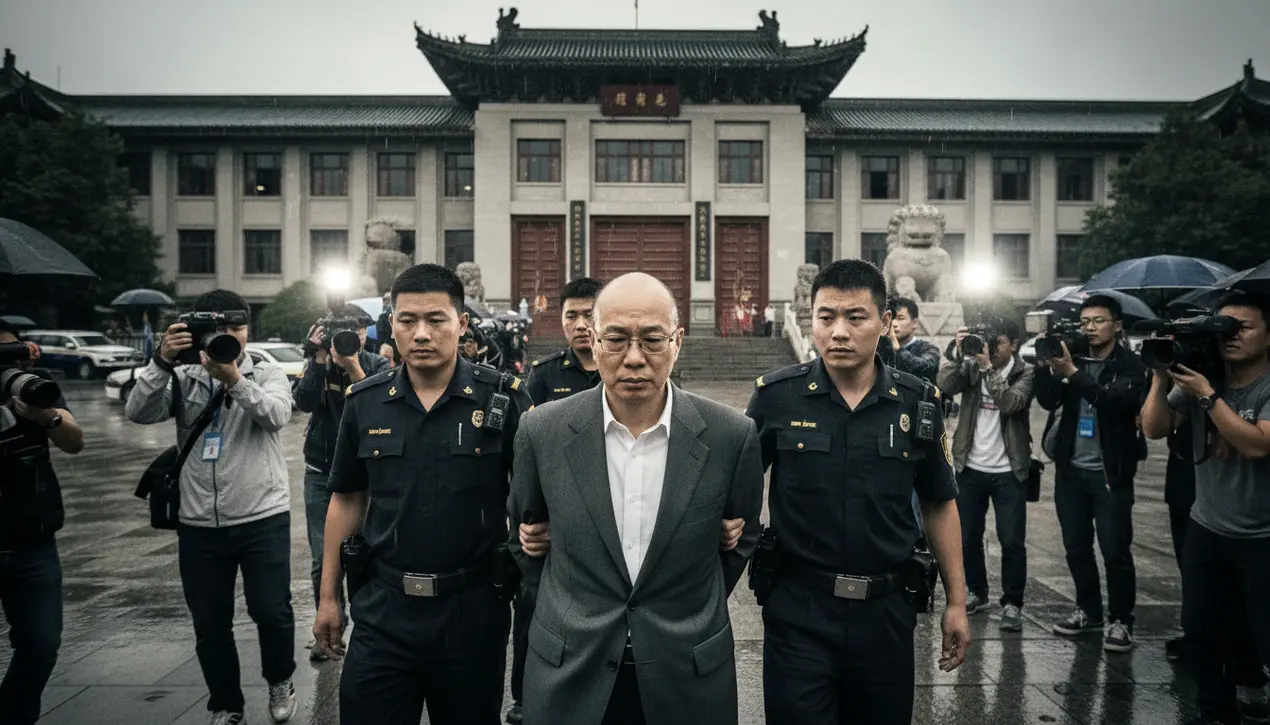
Politicscourts & investigationsCorruption Investigations
Former Shaolin Temple Abbot Faces Prosecution Over Corruption.
RO
Robert Hayes
3 hours ago7 min read
In a development that resonates with historical patterns of institutional accountability, local authorities have formally approved the arrest of Shi Yongxin, the former head of China’s globally renowned Shaolin Temple, marking a critical juncture in a scandal that has captivated the nation for four months. The Xinxiang Procuratorate's stark Sunday announcement confirmed the arrest was sanctioned 'on suspicion of embezzlement, misappropriation of funds, and accepting bribes as a non-state functionary,' a litany of charges that strikes at the very heart of an institution synonymous with spiritual discipline and martial arts purity.Located in China’s central Henan province, a region steeped in ancient history, the temple's fall from grace under Yongxin's three-decade leadership presents a modern political drama worthy of a Machiavellian treatise, where spiritual authority collides with temporal power. This is not merely a financial or sexual misconduct case; it is a profound test of the Chinese Communist Party's ongoing anti-corruption campaign, echoing the historical purges seen in other sectors, from military brass to provincial governors, where the party has demonstrated a relentless will to consolidate control and enforce ideological conformity, even within traditionally autonomous religious spheres.The Shaolin Temple, a UNESCO World Heritage site and the cradle of Chan Buddhism, has long been a symbol of cultural soft power, its brand meticulously commercialized under Yongxin's tenure into a global empire of martial arts schools, media productions, and merchandise—a transformation that critics argue blurred the lines between spiritual stewardship and corporate enterprise, creating fertile ground for the very malfeasance now alleged. The specific charge of 'accepting bribes as a non-state functionary' is particularly nuanced within China's legal framework, a classification often applied to individuals in positions of significant social management who are not formally part of the state bureaucracy, yet whose actions are deemed to undermine public trust and social stability, a legal net that has ensnared university deans and hospital directors with increasing frequency.Analysts observing the situation suggest that the prosecution of a figure as prominent as Yongxin sends an unambiguous signal: no institution, no matter how culturally sacred or internationally celebrated, is beyond the reach of the party's disciplinary apparatus. The potential consequences are manifold, ranging from a severe blow to the temple's global brand and tourist revenue—a vital economic stream for the region—to a deeper, more introspective crisis within Buddhist communities regarding the relationship between monastic life and material wealth.The case also invites comparison to historical precedents where religious institutions faced state scrutiny, not unlike the Vatican's own struggles with financial transparency or the political challenges faced by the Dalai Lama's circle, though the Chinese context is uniquely shaped by its state-atheist governance model. As the legal process unfolds in Xinxiang, a city just two hours from the temple's hallowed grounds, the world watches a narrative unfold that is as much about power, money, and faith as it is about the enduring struggle to maintain integrity within any human institution granted immense influence, a timeless political lesson being writ large in contemporary China.
#Shaolin Temple
#Shi Yongxin
#corruption
#embezzlement
#bribery
#arrest
#China
#featured
Stay Informed. Act Smarter.
Get weekly highlights, major headlines, and expert insights — then put your knowledge to work in our live prediction markets.
Comments
Loading comments...
© 2025 Outpoll Service LTD. All rights reserved.